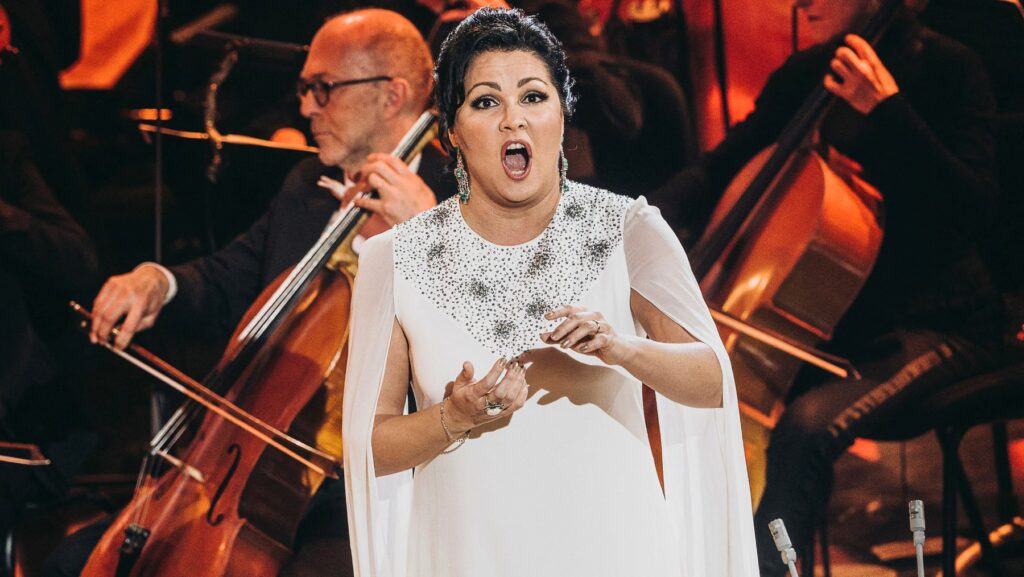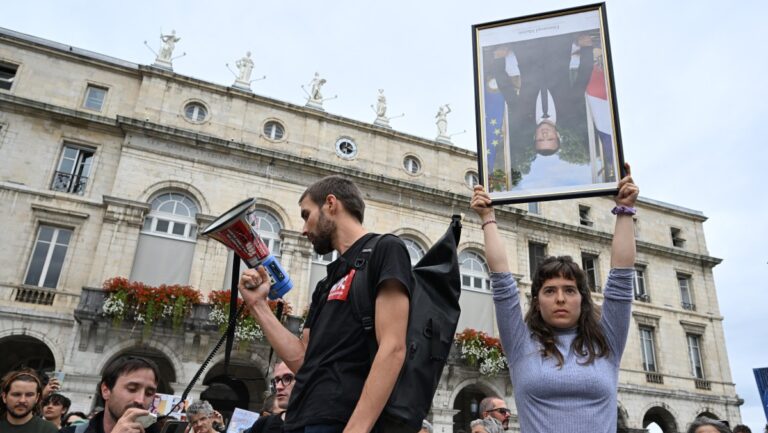When Did The Arts Become So Close-Minded?

Russian opera soprano singer Anna Netrebko performs during the 27th annual Victoires de la musique classique ceremony at the l’Arsenal de Metz, in Metz. northeastern France on February 21, 2020.
Christoph de Barry / AFP
You may also like
The Royal Ballet and Opera in London had an unusually dramatic opening to the company’s season this year. Last night, patrons were greeted by protestors as they arrived for the opening night of Puccini’s Tosca. Demonstrators chanted and waved placards in support of Ukraine, criticising the choice to give Russian soprano Anna Netrebko the lead role.
The issue is not that Netrebko is in favour of the war in Ukraine (she has publicly condemned it), but rather that she has refused to harshly criticise Russian president Vladimir Putin. Like most opera houses around the world, the Royal Ballet and Opera stopped working with Netrebko following the Russian invasion in 2022. Last night’s performance marks Netrebko’s first appearance in London since then.
Netrebko was lucky in that, despite all the controversy surrounding her casting, she was actually allowed to take to the stage. The same cannot be said for Israeli conductor Lahav Shani. This week, a classical musical festival in Belgium decided to cancel the performance by the Munich Philharmonic, one of the leading German orchestras. It was supposed to give a concert at the Flanders Festival Ghent next week, but organisers took the decision to axe it “on the basis of our deepest conviction that music should be a source of connection and reconciliation.” They are, of course, talking about the fact that Shani, the incoming director of the Munich Philharmonic, is Israeli. Although Shani “has spoken out in favour of peace and reconciliation several times in the past,” read an online statement by the Ghent festival, “we are unable to provide sufficient clarity about this attitude to the genocidal regime.” The festival said the cancellation was in line with calls from elsewhere in the local cultural sector “to refrain from collaboration with partners who have not distanced themselves unequivocally from [the Israeli government].” In other words, Shani has been cancelled for the ‘crime’ of being an Israeli.
Like Netrebko, Shani has been branded a cultural outsider because he has neglected to discuss his political beliefs publicly, in great detail. But why should he? Why should anyone who isn’t involved in politics? Whatever Netrebko thinks about Putin, it doesn’t change the fact that she is a tremendous talent. Nor does Shani’s refusal to elaborate on his relationship with the Israeli government dull his achievement of becoming the youngest ever director of the Munich Philharmonic.
Since when did it become so normal to demand that every piece of art we consume be produced by someone whose political beliefs exactly mirror our own? It must be exhausting to have to meticulously research every song you listen to in order to make sure that none of the artists or producers or songwriters have ever disagreed with something you believe. Or to have to set aside hours before watching a film to examine the social-media history of everyone involved with the filmmaking process, in case they have espoused any views you disapprove of. Who has the time or will to do that?
It sounds ridiculous, but this mindset is everywhere now. Just recently, American actress Sydney Sweeney had a cancellation attempt made against her after it was revealed she has been a registered Republican since 2024. Sweeney has not commented on this either way, but silence is as good a confession as any these days. It has since become received wisdom that Sweeney is a card-carrying, Trump-voting, MAGA-hat-wearing Republican, making her and any projects she stars in fair game for boycotts.
J.K. Rowling is, of course, another seasoned veteran of the boycott. Trans activists who take issue with her defence of sex-based women’s rights have been trying for years now to erase her name (literally, in some cases) from the Harry Potter franchise she created. More recently, the trans lobby demanded a boycott against the Hogwarts Legacy video game, which failed miserably. With Rowling directly involved with the production of the latest Harry Potter TV show reboot, similar boycotts have been called—no doubt the impact will be similarly pathetic.
Organised boycotts, in general, are a terrible form of political protest, if they can even be called that. Instead of being told what movies, TV shows, music, or books to avoid by someone else—why not decide for yourself? Yes, there is plenty of art out there that is not worth wasting time on. But the standard we judge it on should be quality rather than ideological purity. Take Disney’s live-action remake of Snow White, for example. It deserved to bomb in the box office not because leading actresses Gal Gadot and Rachel Zegler were, respectively, pro-Israel and pro-Palestine, but because it was a terrible movie. You don’t need a boycott to discern that.
Irish author Sally Rooney takes this circus one step further by effectively boycotting part of her own audience. Since 2021, she has refused to allow her works to be translated into Hebrew and has encouraged other authors to do the same. Israeli audiences are unlikely to be that disappointed in missing out on pretentious, faux-intellectual slop made for mousey brunettes who peaked in university. Nonetheless, this weird inversion of the cultural boycott is another depressing marker of how intolerant the arts have become.
Art is at its best when it challenges us. That means being forced to recognise that a person who you might disagree with, or even hate, is capable of creating something beautiful and moving. Fiction in particular is vital to developing empathy and respect for people very different from yourself—things that are sorely lacking these days. The ability to get inside someone else’s head, see the world through their eyes, and understand their choices is an indispensable human skill. Unfortunately, it doesn’t seem to be a skill that is valued anymore.
Boycotts, trigger warnings, and cancellations do their best to keep us sequestered away in our bubbles. More of us should consciously choose curiosity over cultural quarantine—even if that means enjoying art by people you can’t stand.





No comments:
Post a Comment